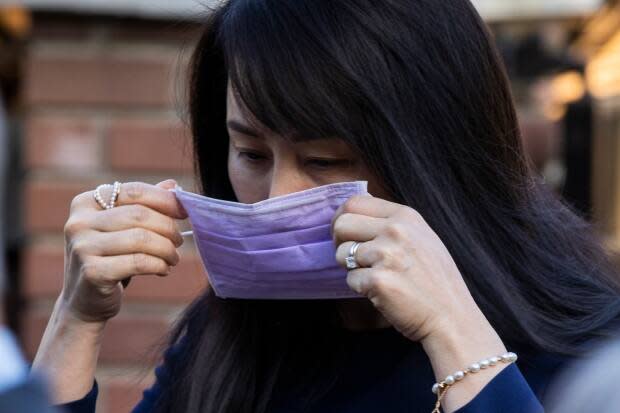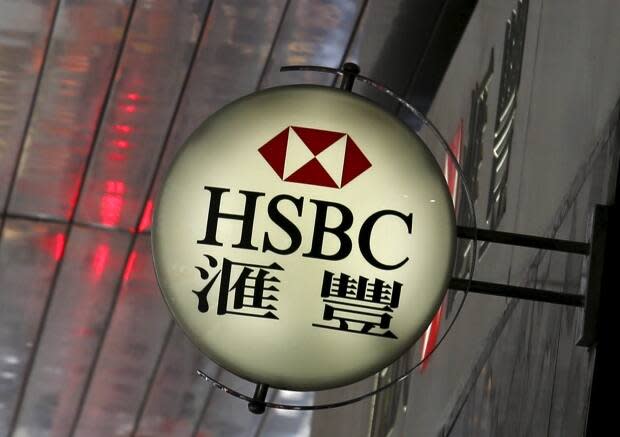Meng Wanzhou's lawyers look to new HSBC documents to bolster bid to halt extradition

Lawyers for Meng Wanzhou will spend two days in B.C. Supreme Court next month trying to convince a judge to allow them to rely on newly discovered evidence as part of their bid to prevent the Huawei executive's extradition.
At a case management conference Wednesday morning, Associate Chief Justice Heather Holmes agreed to a schedule that will see Meng's defence team make an application to introduce the new evidence starting June 29.
Meng's lawyers didn't specify the nature of the evidence, but they have spent the past month poring through HSBC documents released by a Hong Kong court for proof to back up their claims that the United States misled Canada into arresting the 49-year-old by omitting key details about fraud allegations against her.
Accused of lying to HSBC executive
Meng is the chief financial officer of Huawei and the daughter of the Chinese telecommunication giant's founder.
Prosecutors claim she lied to an HSBC executive in Hong Kong in 2013 about Huawei's control of a subsidiary accused of violating U.S. economic sanctions against Iran.

According to the record of the case the U.S. filed to justify the commencement of extradition proceedings in Canada, HSBC relied on Meng's alleged misrepresentations to continue handling financial transactions for Huawei, putting the bank at risk of prosecution and loss.
HSBC had a deferred prosecution agreement with the U.S. government at the time of the alleged offences which meant the bank was under added scrutiny.
Meng was arrested at Vancouver's airport on Dec. 1, 2018, and the extradition proceedings have been grinding their way through the court ever since. Final arguments were supposed to have begun at the end of April, but Holmes granted a last minute adjournment to give the defence time to digest the new HSBC documents.
Her legal team had already announced plans to argue that the record of the case was flawed when the Hong Kong court agreed to release documents her Canadian lawyers have been denied access to in both the U.K and the U.S.
Extradition is supposed to be an expedited process and the Crown has pointed out that the judge is supposed to determine if there's enough evidence, at face value, to warrant a trial — not get into the weeds of the allegations.
But the defence has indicated it will argue the U.S. lied and neglected to include key information to make the record of the case look stronger than it is.
It claims Meng did not lie and that senior HSBC executives were aware of the risks posed by Huawei's relationship with its subsidiary. it also argues the bank faced no real threat of loss.
Defence to argue cumulative effect warrants stay
The defence has to file its submissions on the new evidence by June 7 and will make oral arguments on the last two days of the month.
Holmes said the final three weeks of the proceedings can begin Aug. 3, but those dates may shift depending on whether she decides to allow the evidence into the proceedings.

The defence is seeking a stay of proceedings based on arguments related to the allegedly misleading record of the case. It has already argued the extradition should be tossed on three other grounds of alleged abuse of process.
Meng's lawyers claim she's being used as a political pawn, that her rights were abused at the time of her arrest and that the U.S. is acting outside international law by trying to assert jurisdiction over her actions in Hong Kong.
During the August hearing, they will argue that the cumulative effect of all those allegations should result in a stay, even if any one of them alone is not enough to convince the judge.
The final part of the hearing will include submissions on the extradition request itself. The Crown has argued that Meng should be sent to New York to face trial.
Meng has been living under a form of house arrest since she was released on $10 million bail a little more than a week after her arrest.
She has denied the allegations.

